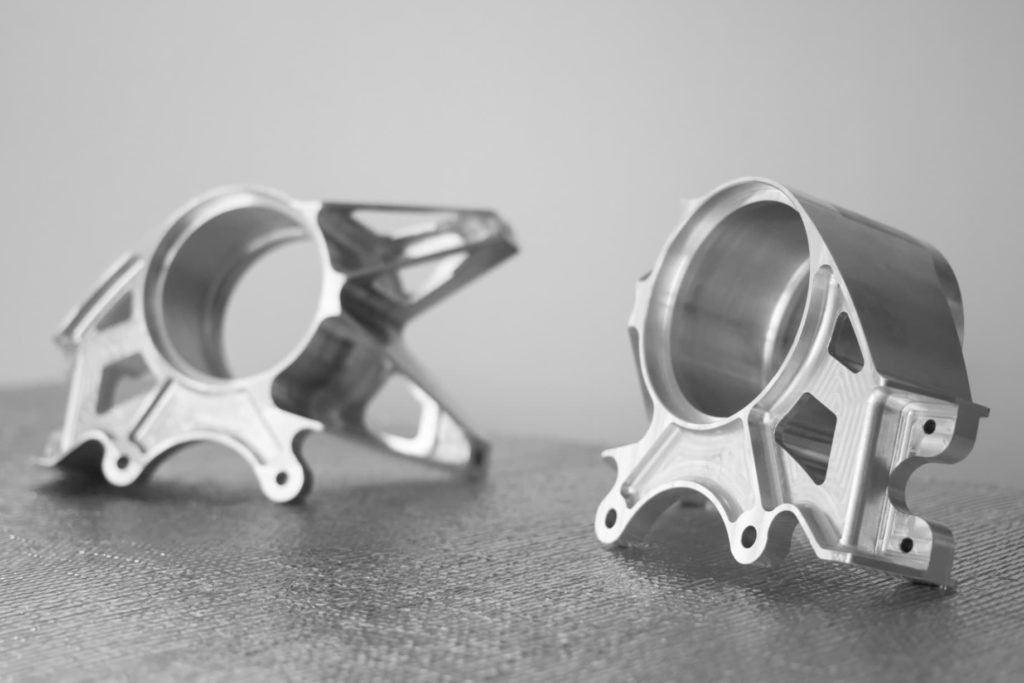Alcast Company Can Be Fun For Everyone
Table of ContentsGetting My Alcast Company To WorkThe 15-Second Trick For Alcast CompanyThe Facts About Alcast Company RevealedThe smart Trick of Alcast Company That Nobody is DiscussingAlcast Company - QuestionsIndicators on Alcast Company You Should Know
Chemical Comparison of Cast Light weight aluminum Alloys Silicon advertises castability by decreasing the alloy's melting temperature level and enhancing fluidity during spreading. In addition, silicon adds to the alloy's strength and put on resistance, making it valuable in applications where toughness is crucial, such as automotive components and engine elements.It additionally boosts the machinability of the alloy, making it much easier to process into ended up products. This way, iron adds to the total workability of aluminum alloys. Copper increases electric conductivity, making it helpful in electrical applications. It additionally boosts rust resistance and contributes to the alloy's total stamina.
Manganese adds to the strength of aluminum alloys and boosts workability. Magnesium is a lightweight component that provides stamina and influence resistance to aluminum alloys.
Alcast Company Can Be Fun For Anyone
It permits the production of light-weight parts with superb mechanical buildings. Zinc enhances the castability of light weight aluminum alloys and helps control the solidification process throughout spreading. It enhances the alloy's toughness and hardness. It is frequently found in applications where detailed forms and great information are essential, such as decorative spreadings and particular automobile parts.

The main thermal conductivity, tensile stamina, return toughness, and prolongation differ. Select suitable basic materials according to the performance of the target product produced. Amongst the above alloys, A356 has the highest possible thermal conductivity, and A380 and ADC12 have the lowest. The tensile limit is the contrary. A360 has the ideal return stamina and the highest possible prolongation price.
How Alcast Company can Save You Time, Stress, and Money.

In accuracy spreading, 6063 is appropriate for applications where complex geometries and top quality surface finishes are paramount. Examples consist of telecommunication units, where the alloy's premium formability enables streamlined and aesthetically pleasing layouts while keeping architectural stability. Likewise, in the Lighting Solutions industry, precision-cast 6063 parts develop sophisticated and effective lighting components that call for elaborate shapes and good thermal performance.
It leads to a better surface finish and far better rust resistance in A360. Furthermore, the A360 exhibits premium prolongation, making it ideal for facility and thin-walled elements. In accuracy casting applications, A360 is fit for markets such as Consumer Electronic Devices, Telecommunication, and Power Tools. Its boosted fluidity allows for complex, redirected here high-precision elements like smart device cases and communication tool housings.
Getting The Alcast Company To Work
Its special residential properties make A360 a useful option for precision casting in these industries, improving item toughness and high quality. aluminum casting manufacturer. Aluminum alloy 380, or A380, is an extensively utilized spreading alloy with a number of unique qualities.
In precision casting, light weight aluminum 413 radiates in the Customer Electronics and Power Devices industries. It's generally used to craft detailed components like smart device housings, electronic camera bodies, and power tool coverings. Its precision is impressive, with tight resistances approximately 0.01 mm, making sure flawless item setting up. This alloy's premium rust resistance makes it an outstanding choice for exterior applications, making certain durable, resilient products in the stated sectors.
The Only Guide to Alcast Company
The light weight aluminum alloy you select will substantially affect both the casting procedure and the buildings of the last item. Because of this, you must make your choice thoroughly and take an informed strategy.
Establishing the most ideal aluminum alloy for your application will certainly indicate weighing a vast range of characteristics. These relative alloy qualities adhere to the North American Die Casting Organization's standards, and we've divided them right into two categories. The initial classification addresses alloy qualities that influence the manufacturing process. The second covers attributes impacting the residential properties of the end product.
Alcast Company Things To Know Before You Get This
The alloy you pick for die spreading straight influences numerous facets of the spreading procedure, like just how very easy the alloy is to collaborate with and if it is prone to casting problems. Hot breaking, likewise called solidification fracturing, is a normal die spreading issue for light weight aluminum alloys that can cause inner or surface-level rips or splits.
Particular aluminum alloys are a lot more prone to hot breaking than others, and your choice must consider this. One more common defect located in the die spreading of aluminum is die soldering, which is when the actors stays with the die walls and makes ejection difficult. It can harm both the actors and the die, so you ought to look for alloys with high anti-soldering buildings.
Deterioration resistance, which is currently a significant characteristic of aluminum, can differ significantly from alloy to alloy and is a necessary characteristic to consider depending on the environmental problems your product will be revealed to (aluminum casting company). Wear resistance is an additional property frequently sought in light weight aluminum products and can set apart some alloys